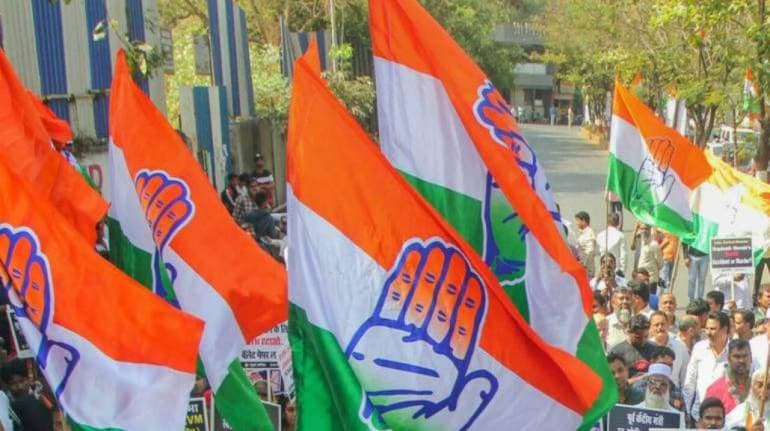



Sujata Anandan
The exits of Urmila Matondkar, Kripashankar Singh and Harshavardhan Patil from the Congress — all within a span of 48 hours from Maharashtra which goes to polls in a few weeks’ time — could not have come at a worse time for the party. That said, these losses are no debilitating blow for the party except for the bad optics it presents.
Matondkar was parachuted into the party just before the Lok Sabha elections this summer, hours before the Congress changed its leadership in Mumbai replacing Sanjay Nirupam with Milind Deora as President of the Mumbai unit. Singh has been one of their predecessors in the job and Patil a former minister in both the Shiv Sena-BJP and Congress-NCP governments in the state finding it easy to switch between saffron and secular as it suits him.
Patil’s exit from the Congress is purely in the interest of self-preservation. His constituency is part of the Baramati parliamentary seat and Nationalist Congress Party (NCP) chief Sharad Pawar has always been wary of promoting a man, seen as a potential chief minister, who could create competition for his nephew Ajit Pawar. So the Pawars and the Patils have been feuding for years and Patil has had to resort to contesting the Indapur seat (In Pune) on his own with support from the Sena-BJP even in the past.
This time as soon as it became obvious that the NCP will not concede the seat to the Congress, Patil had no choice but to join the BJP to contest this traditional Congress-NCP seat on a saffron ticket. The BJP will most likely wrest the seat.
Singh too has realised that with the recent change of guard in the Mumbai Congress he may not have much of a role to play in the party. His reason for quitting — disagreement with his party's stance on Article 370 — is both specious and rather late in the day. His exit too is linked to the possibility of a ticket denial, though it is not clear yet if he will join either of the two ruling parties.
In the first place, Matondkar, being a newcomer, should not have been given a ticket to contest especially when there were many long-timers waiting to contest. Her exit, however, has brought into focus the real conflict in the Congress — this was put across bluntly by the outgoing Mumbai Congress chief Milind Deora in a tweet: Mumbai North leaders let Matondkar down while he wholeheartedly supported her. Deora is from South Mumbai. Matondkar was brought into the party by Nirupam but was clearly more comfortable with Deora.
However, all these personal conflicts and issues of self-interest have also been exacerbated by the party having become leaderless since the Lok Sabha results in the wake of Rahul Gandhi’s resignation as Congress President. Deora, Gandhi’s close aide, resigned after just four months at his job bringing the battle between him and Nirupam to the fore.
Nirupam has accused Deora of conspiring with Singh, also considered close to the Gandhis, to unceremoniously have him ousted as city president days before the election. When Deora resigned, he openly accused the latter of incompetence and disconnect with party workers.
The appointment of former MP Eknath Gaikwad has not helped either. Gaikwad is more disconnected with party workers outside his immediate constituency in Mumbai South Central and although a Marathi face, he is unlikely to be accepted by the majority non-Marathi voters of Mumbai.
There’s, however, more that ails the Congress. After its dismal performance in the Lok Sabha polls and with barely 80 days to the assembly elections, the party appointed Balasaheb Thorat as Maharashtra party chief. While a committed ideologue and close to Gandhi, Thorat is hardly assertive, very diffident and unable to take on the ruling party as he should. In order to assist him, the Congress took the unusual step of appointing four rather assertive working presidents from different communities, including a Maratha, a Dalit, a Muslim and a woman. Rather than solving existing ones, this has only created more problems.
For example, as one of the working presidents Nitin Raut readmitted expelled party member Satish Chaturvedi to the Congress negating all principles of party discipline. A couple of months ago Chaturvedi's son joined the Shiv Sena with much fanfare. This reminds one of the Vikhe-Patils saga, when the son joined the Bharatiya Janata Party (BJP) ahead of the Lok Sabha polls and the father continued as leader of the opposition in the Congress without any disciplinary action against him.
To all this add fact that the man put in charge of screening candidates for the upcoming polls, Jyotiraditya Scindia, has his focus more on the Madhya Pradesh Congress presidency than on polls in Maharashtra. The picture of disarray is complete.
There are no rules anymore, no discipline, no one knows who is in charge and no one listens to those who are in charge. For the leaders it is a battle of egos and for potential candidates it is a matter of tickets. For committed party workers it is an existential battle with nowhere else to go and no one to look up to. Given things the way they are, only a miracle can save the Congress in Maharashtra.
Sujata Anandan is a senior journalist and author. Views are personal.
Discover the latest Business News, Sensex, and Nifty updates. Obtain Personal Finance insights, tax queries, and expert opinions on Moneycontrol or download the Moneycontrol App to stay updated!
Find the best of Al News in one place, specially curated for you every weekend.
Stay on top of the latest tech trends and biggest startup news.